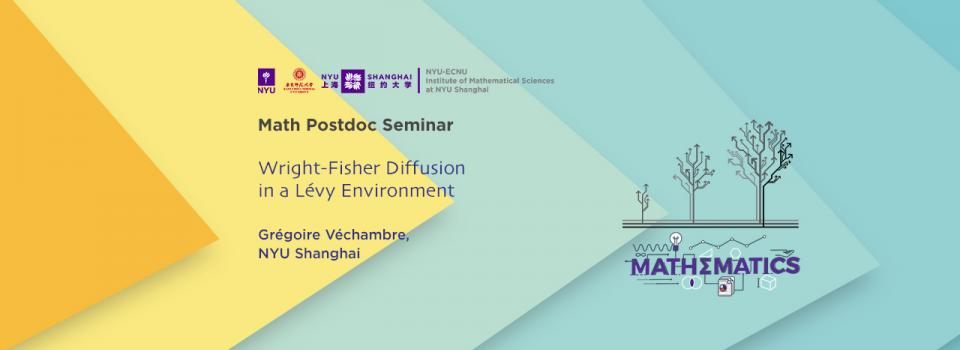
Abstract:
We are interested in Moran models and Wright-Fisher diffusions to model a bi-allelic constant size population with selection (favoring one allele) and sometimes mutations. In this talk we will focus on such models when there is a Lévy environment driving the selection and we will present genealogy methods which are based on the study of the Ancestral Selection Graph (ASG) that was introduced by S.M. Krone and C. Neuhauser in 1997. These methods allow to study interesting quantities like the probability of fixation of an allele (for which series representations can often be obtained), the fixation time, or the distribution of the alleles in the population after a long time. Finally, we will present a new model where, depending on the Lévy environment, selection is sometimes favoring an allele and sometimes the other. We will see that, because of the two-sided selection, classical ASG methods all fail in the case of this model. In a work in progress with F. Cordero, we propose a new combinatorial approach to study the ASG which allows, in the case of this model, to derive a series representation for the fixation probability.
Biography:
Grégoire Véchambre is a Postdoctoral Research Fellow in Mathematics at NYU Shanghai. He holds a Ph.D. from Orléans University, received in November 2016, and prepared under the supervision of Dr. Pierre Andreoletti. Before his Ph.D., he studied mathematics in the Britanian branch of ENS Cachan (that school became ENS Rennes in 2014).
Grégoire Véchambre's work lies in probability theory. His research interest are mainly in processed random environments, Lévy processes, and exponential functionals of Lévy processes.
Seminar by the NYU-ECNU Institute of Mathematical Sciences at NYU Shanghai


